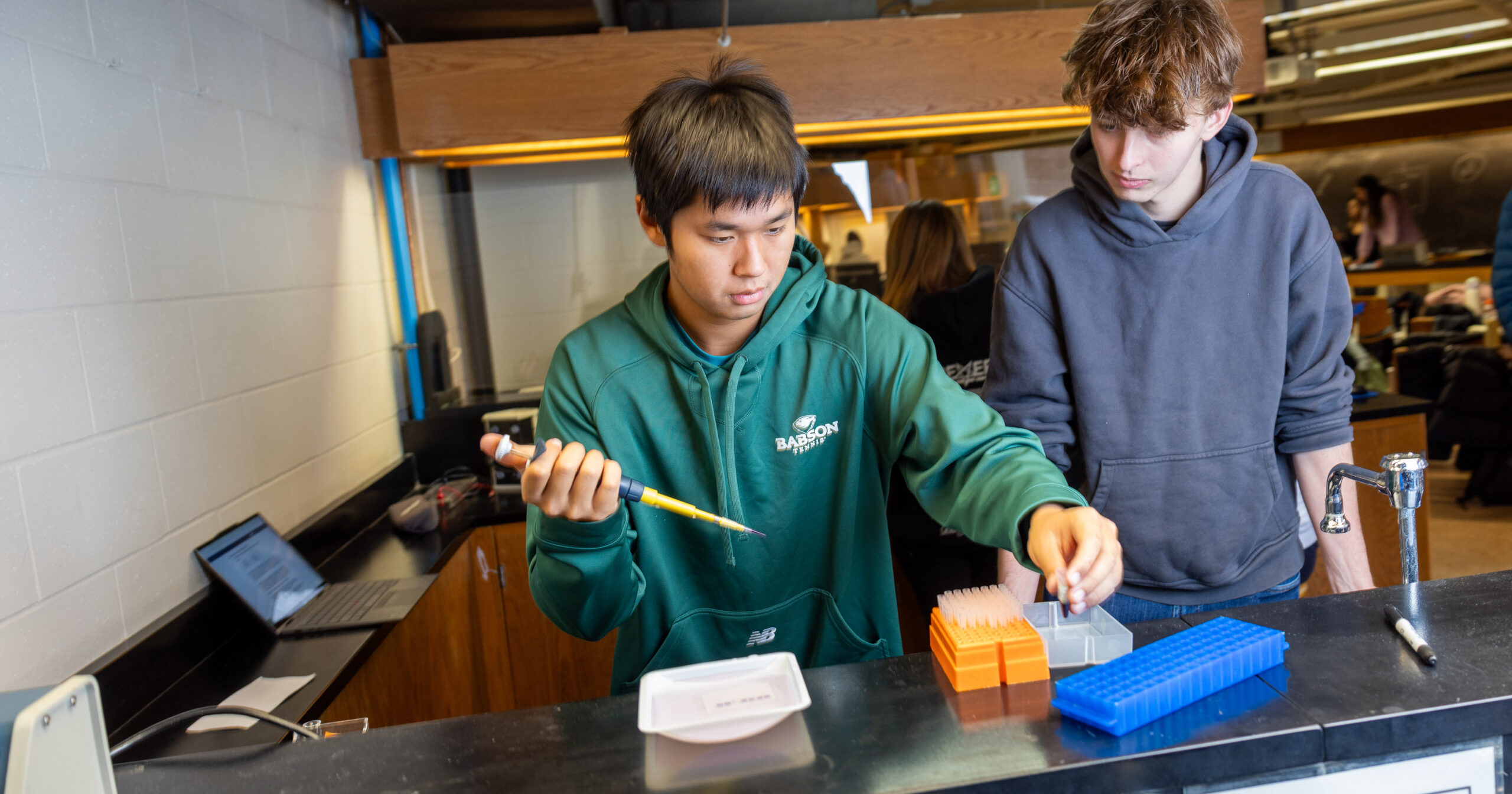Breaking Down the 4 Pillars of Self-Efficacy: Part III

While women’s entrepreneurship is on the rise, a major success gap remains in the perceptions of new entrepreneurs: only 46% of women believe they have the skills and knowledge needed to start a business, compared to 61% of men.
This belief as to whether an individual has the abilities perceived as central to their success is known as self-efficacy. And, self-efficacy plays a major part in determining our chances for success; in fact, some psychologists rate self-efficacy above talent in the recipe for success. Babson College’s Women Innovating Now (WIN) Lab® breaks down four pillars of self-efficacy in a four-part series. Don’t miss parts I, II, or IV to explore more about building entrepreneurial women leaders.
Part III: Physiological States
All people experience sensations from their body that influence their perceptions of efficacy. If a person is more at ease with the task at hand, and is working within a supportive framework, they will feel more capable and have higher levels of self-efficacy.
“Building a company can be hard, lonely, and exhilarating, often in the same day. The WIN Lab program makes that journey easier through their courses while fostering the expansion of your network with other women entrepreneurs who are there to offer support when you need it.”
Unfortunately, women may experience higher levels of stress and anxiety in typically male-dominated environments, in part because of the persistence of negative perceptions about women in those environments. This cycle is known as “stereotype threat”—the phenomenon that occurs when a woman is aware of the perception that women perform poorly compared to men at a given task, and as a result, she fails to perform up to her ability. Being reminded of negative stereotypes can cause a woman to become subconsciously apprehensive about confirming the stereotype, leading to a reduction in cognitive ability, impaired concentration, and increased stress and anxiety. Studies have demonstrated this effect in math and science, where women reported an increase in negative feelings and suffered a sharp decrease in performance when reminded of negative stereotypes about women in those fields.
In the startup environment, especially in accelerators and incubators that are still mostly male-dominated, it becomes increasingly important to mitigate stereotype threat and create opportunities for founders to operate in environments where stress and anxiety is lessened. One such method to overcoming stereotype threat and reducing the stress and anxiety that depletes self-efficacy is to seek out and build a community of support. Operating within a healthy ecosystem allows women to take risks, incorporate feedback, and to iterate in ways that support their entrepreneurial goals. At the WIN Lab, a low-stress environment enables participants to test, disrupt, and innovate without the high-pressure, ultra-competitive environments that dominate the traditional business atmosphere. The Lab provides women with the road map, expertise, inspiration, and community needed to successfully grow their ventures.
Posted in Insights



